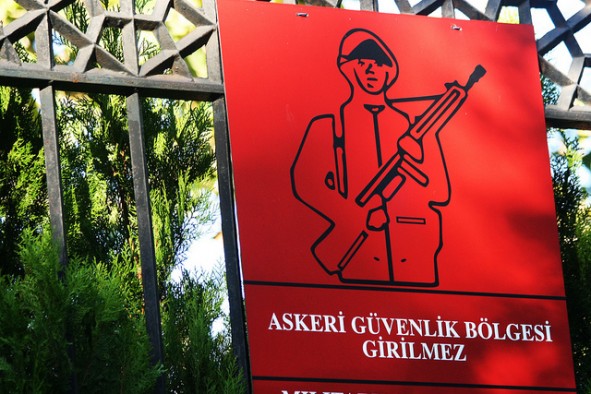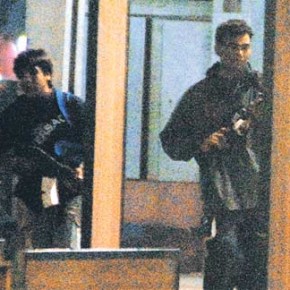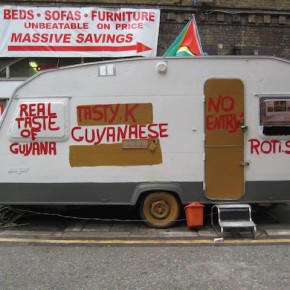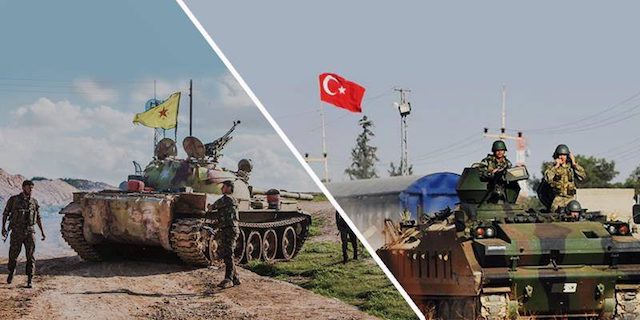Several Turkish and Kurdish cities are successful recruiting grounds for ISIS, in particular the capital Ankara and the majority-Kurdish city Adıyaman. Despite the AKP government heavily publicising their raids and arrests of alleged ISIS members, lax border controls are obvious. This is especially the case since the attackers in Diyarbakır, Suruç and Ankara were all Turkish citizens returning from fighting in Syria.
The Suruç bombing was followed by the killing of two Turkish police officers in Ceylanpınar by the Kurdistan Workers’ Party (PKK).
This act, a supposed break in a two year ceasefire between the Turkish state and Kurdish guerrillas, was widely explored in both Turkish and Western media as a sudden break by the PKK and a return to anti-state aggression by the group. Rather than an unwarranted attack, this retaliation to perceived (and not unlikely) state support for terror was merely a link in a greater chain of anti-state retaliations by the PKK over the past year and a half.
The return to direct physical oppression of the Kurdish population by the Turkish state and the reactionary flow of the AKP from the June election backwards into civil war posturing of the 1990s will be discussed in a later article. For now, we will discuss how the violence affected expectations of recent elections in Turkey on November 1.
Despite ongoing anti-Kurdish and anti-leftist state violence, the expectations of Kurds and HDP activists were by and large positive. Whereas the June elections were a ‘do or die’ affair, with all efforts centred on passing the threshold to prevent AKP domination, and, in the worst case scenario, a three-fifths AKP majority which would enable unilateral changes to the constitution, the votes, seats and districts won by the HDP a few months ago were seen as secure in the run-up to November.
On October 31, in the HDP’s Istanbul central office in Tarlabaşı, a party member introduced international delegations to the prospect of the next Turkish elections in order to prepare them for their duty as independent electoral observers in several of Istanbul’s districts. Stating that even “normal” anti-leftists within the country had “convicted Erdoğan and the AKP” of seeking to create a new Turkish civil war, many felt that the AKP’s lack of a majority was sure to be stable – and that the amount of seats gained by the HDP in June would hold.
That’s not to say that there wasn’t fear in the room that the AKP’s war-mongering politics of fear would work. Discussing months of curfews, shellings, shootings and arrests, with 2600 HDP members put under detention (stated in HDP Istanbul pre-election meeting – taken from my notes – also stated in ‘banned link) and mayors and district co-chairs among them, an official stated that this was like “an election during the coup.” With the HDP banned from sharing their party manifesto, and direct threats towards its co-chairs, there was still hope of a better Turkey. On October 31, there was still hope in Istanbul’s beating Kurdish heart, Tarlabaşı.
I didn’t expect much out from the November 1 elections – but I definitely expected something better. Me, two other election observers from Greece and a small bunch of local HDP members and supporters were sitting in the café of the regional election centre for Beykoz, the district of Istanbul we had been assigned to observe.
Beykoz is an AKP stronghold and the ‘votes,’ or rather the approximation of them, were coming through region-by-region on the pro-AKP channel. It was quite the lovely gathering – a bunch of Kurdish lefties in the corner surrounded by cops, learning that the AKP had just re-gathered their majority.
As the results updated – the channel constantly filtering through Turkey’s regions alphabetically as the numbers of votes counted grew – we took numerous smoking breaks, not that they broke the tension of the café in the slightest. Outside it was the same: us and the cops. A Turkish member of the Beykoz HDP reflected on the results saying that we were wrong to expect anything better than an AKP majority government.
After all, this is what the Turks “deserved,” he said. The AKP has spent its 13 years in government co-opting Turkey; co-opting the bodies of the peoples of Turkey; co-opting the land of Turkey; co-opting the people, the police and the law as pure political tools for a twisted Islamist vision of neoliberal authoritarianism. The Turks, he said, had bowed down to racism and militarism time and time again over the course of the Turkish republic.

Very little is new about the AKP’s governing strategy for Turkey – all of it have been seen before. The village guard system, in place since the dictatorship of the 1980s, recruits members of Kurdish villages in the south-east and pays them to act as guards against PKK guerrillas. They are state informants, and sometimes actors in state violence – collaborators in the highest regard, not that one can blame those bullied, paid or blackmailed into collaboration.
AKP rule is special, however, for how it has led to the expansion of civil-war era approach to the Kurdish body and land to the rest of Turkey. This has been made possible by the fact that it continues to govern with parliamentary majorities, unprecedented before its formation in 2001.
Tarlabaşı is another sign of the AKP building on previous authoritarian approaches to the land and peoples of Turkey. A historic Greek and Armenian neighbourhood in Istanbul which quickly became populated by Roma and Kurds when the former residents were forced to leave, Tarlabaşı is now also populated by a combination of African and Syrian refugees, along with Erasmus students.
The AKP did not divide Tarlabaşı from the rest of Taksim, creating a culture of poverty, criminalisation and demonisation, but they did expand their gentrification projects (which can be witnessed in many other Istanbul neighbourhoods such as Sulukule and in the redevelopments that led to the Gezi Park protests in 2013) to the area, forcing the physical existence of many oppressed minorities and stateless individuals into a precarious state.
The AKP did not invent the rape of Turkish land for foreign investment and industrialisation, nor did they create the division between secular Turks and Muslims. They did not plan the colonisation of Kurdish land, neither did they decide upon Turkish militarism and the psychology of the nationalist historical revisionism at the very basis of the state.
The AKP merely refined and invigorated these aspects of the Turkish political and societal landscape during a period of relative stability and security, exploiting it to prepare the nation for a more authoritarian future.
Photographs courtesy of Quinn Dombrowski and Dietmar. Published under a Creative Commons License.





